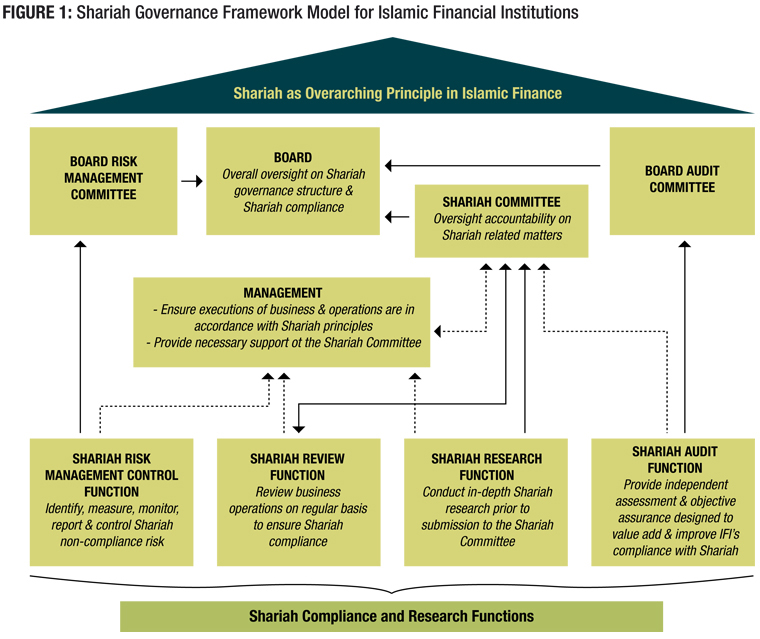By Halimaton Mohamad
There are ongoing debates on key issues related to the appointment of a Shariah Committee as an advisor to an institution, relating to independence, competency and conflict of interest, and transparency and disclosure.
Independence and Conflict of Interest
Firstly, the issue of independence arises due to the payment received by the Shariah Committee members’ involvement in product structuring. This hampers the objectivity of its advisory role as well as reporting made to the Board.
In addition, it is believed that the management also influences the Shariah Committee in deriving their opinion.
However, this issue will be addressed through the new policy document on Shariah governance, where Shariah Committees are required to have an established methodology in coming out with their opinion, and the management is required to abstain themselves during the Shariah deliberation process.
Competency
Secondly, Shariah Committees are expected to enhance their competency level with regards to the finance and banking business. There is a need to build up a pool of Shariah scholars who are experts in finance and banking as well as fiqh research related to Islamic finance.
However, the Association of Shariah Advisors (ASAS) in Malaysia is currently tackling this issue by introducing the Certified Shariah Advisors programme, which aims to certify and scale up the competency of Shariah advisors locally and globally.
Disclosure
Third, with regards to disclosure, Shariah Committees have been questioned over two issues. One, the nature of work performed in coming out with the Shariah Committee report. Two, the extent of transparency of disclosure, specifically the absence of disclosure on Shariah non-compliant income by the majority of Islamic financial institutions.
As of 2010, the central bank has increased the requirements for disclosure of non-compliant income and method of purification, as well as the beneficiaries of the Shariah non-compliant income. However, only a few banks disclosed the information in their financial report.
Through the future policy document, the Shariah Committee is expected to form an opinion on the Shariah Committee Report based on a specific methodology that will be developed by the Islamic finance institution.
However, this may create a different methodology in coming out with a Shariah opinion and creating another debate in the industry on the methodology. Therefore, this issue may need ASAS’s attention to develop a set of transparent methodology, standards and guidance in disclosing a Shariah opinion.
Shariah Committees are still relevant
In today’s landscape, the Shariah Committee’s role is still crucial in ensuring a Shariah- compliant environment risk culture, regardless of the structure of the Shariah governance framework.
A matured Islamic financial system will only exist when the practitioner and regulator in the industry can assimilate the Shariah component in the existing corporate governance framework, without the need to have a separate Shariah governance framework.
This will enable Islamic finance entities to behave like a typical business organisation which evolves naturally in terms of the resources needed and products offered, i.e. employing or training talent on the necessary skills, appointing necessary competent individuals to sit on the Board and demonstrating product uniqueness and differentiation in line with the business needs.
However, maturity is foreseen to only become a reality when the industry has a sufficient pool of competent talent on Shariah, Shariah-savvy Board and management, robust regulations and highly educated consumers on Islamic finance.
This is the executive summary of a case study written by Halimaton Mohamad, as a requirement for the MIA Islamic Finance Mini Pupillage Programme.
You might also be interested to read the article on ‘Comparing Negative Interest Rates Policy & Mudarabah Investment Deposits’ by Muadz Abdul Jalil.







